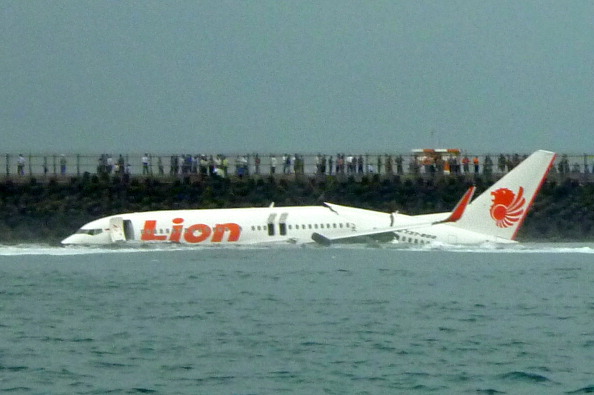
Lion Air families told 737 MAX design flaws linked to deadly crash

According to a report that is scheduled to be released officially this Friday,mechanical and design issues contributed to the crash of a Lion Air 737 MAX jet last October, Indonesian investigators told victims’ families in a briefing on Wednesday.
Contributing factors to the crash of the new Boeing jet, which killed all 189 on board, included incorrect assumptions on how an anti-stall device called the Maneuvering Characteristics Augmentation System (MCAS) functioned and how pilots would react.
The briefing slides showed that a lack of documentation about how systems would behave in a crash scenario, including the activation of a “stick shaker” device that warned pilots of a dangerous loss of lift, also contributed.
Ony Soerjo Wibowo, an investigator with Indonesia’s National Transportation Safety Committee (KNKT) who delivered the briefing, declined to comment afterward. An agency representative also declined to comment.
A Boeing spokeswoman declined to comment on the briefing, saying: “As the report hasn’t been officially released by the authorities, it is premature for us to comment on its contents.”
The 737 MAX was grounded worldwide after a second deadly crash in Ethiopia in March 2019.
Plane maker Boeing is under growing pressure to explain what it knew about 737 MAX problems before the aircraft entered service.
Boeing has already said it would redesign the MCAS anti-stall system to rely on more than a single sensor and to help reduce pilot workload.
The plane-maker has since acknowledged that MCAS and a faulty angle of attack sensor played a role, and apologized for lives lost without admitting formal responsibility.
Boeing last month settled the first claims stemming from the Lion Air crash, a U.S. plaintiffs’ lawyer said.

Three other sources told Reuters the families of those killed will receive at least $1.2 million each.
The manufacturer faces nearly 100 lawsuits over the Ethiopian Airlines crash on March 10, which killed all 157 people on board the flight from Addis Ababa to Nairobi.

The 737 MAX was grounded following the second crash, leaving Boeing and the U.S. Federal Aviation Administration (FAA) grappling to contain a crisis that has left 346 people dead, forced airlines to ground more than 300 aircraft, and put Boeing deliveries worth more than $500 billion on hold.






